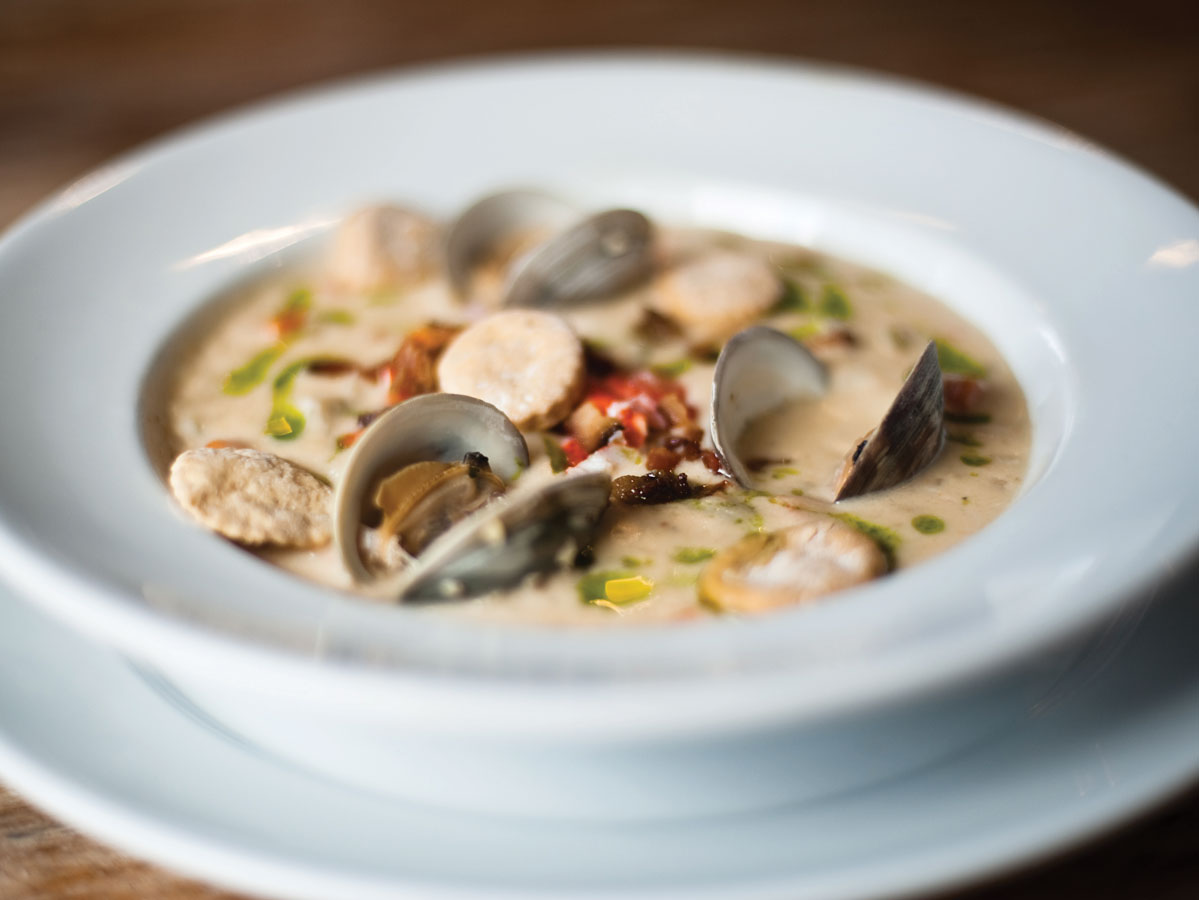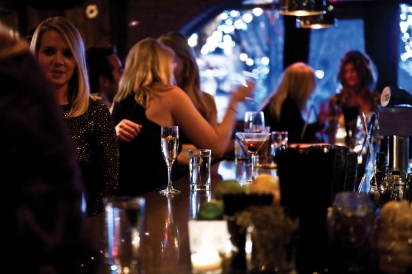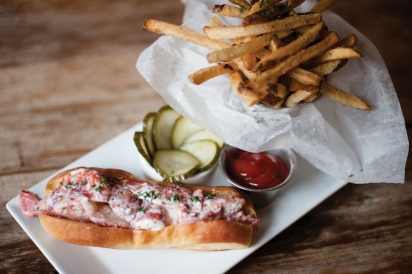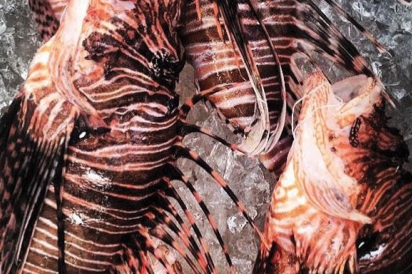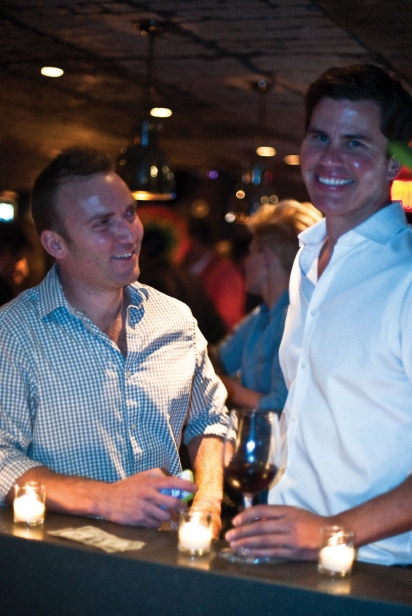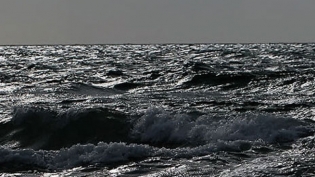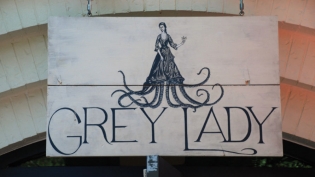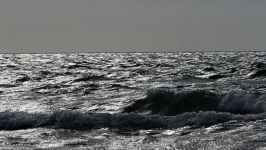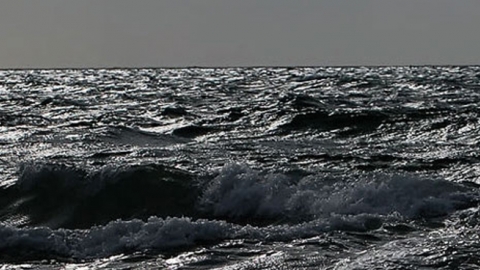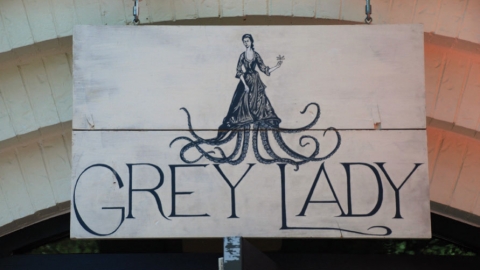Going Coastal at Grey Lady
It’s 2,219 miles from Nantucket Harbor to the brick pavers of downtown Aspen. Yet if you beelined it from southern Massachusetts to 305 S. Mill St., you’d end up back where you started, symbolically speaking, for the time it takes to dine at the New England-inspired seafood restaurant Grey Lady. Nicknamed for the fog that blankets Nantucket, the two-year-old restaurant is the second of four: the others are in Manhattan, Nantucket and Montauk.
The wave-like arch over the Aspen entryway guides diners into an artfully weathered nautical interior, evocative of a silvery sea engulfing a wooden dock. The 115-year-old hand-pressed tin ceiling, reclaimed from a Lower East Side tenement, gives the illusion of a star-speckled sky—designer Emily Siegal (of Emily Franz Design) wanted to create a vibe both coastal and eclectic, but also comfortable.
The menu captures that same ethos, boasting starters like lobster deviled eggs, clam croquettes and grilled crostini with poached egg and house-smoked salmon roe, and mains such as the “Aspen clambake” and lobster pot pie. Touches like the mezcal-enhanced smokiness in the shrimp cocktail sauce are a nod to the sophistication and nouveau spirit of Aspen’s culinary scene.
“We’ve taken that East Coast fish house idea and elevated it to Aspen’s standards—or rather, Grey Lady’s standards,” says Executive Chef Kyle Raymond. “We want to bring that little wisp of ocean air to the mountains.”
Building on a brand
Raymond, 32, was Grey Lady’s sous chef and took over the kitchen last winter. He trained at Le Cordon Bleu College of Culinary Arts in Chicago; his Aspen credentials include executive chef at Mezzaluna and working with Chef Miles Angelo at the Caribou Club.
After taking over Grey Lady’s kitchen, he changed 90 percent of the menu, keeping signature dishes like the rich, lobster- and bacon-studded clam chowder. “I wanted to carve my own path as the new chef and keep the menu fresh,” he explains of introducing dishes like crab-stuffed baked sole with lemon butter, spinach and Ritz crackers. “A lot of East Coasters come to Aspen and wonder how we have Maryland crab cakes and lobster rolls, and they try them and say they’re just as good.”
Adds Grey Lady co-owner and Maine native Ryan Chadwick (he and business partner Ian Perry also own Aspen’s Escobar), “I think our customers trust us. We have a four-location brand that holds up. They know the fish is going to be fresh and sustainable, if we can source it.”
Chadwick is no stranger to seafood. Not only is it in his blood from growing up in coastal towns, but his uncle Todd Babula and grandfather Arthur were both lobstermen. While Chadwick never aspired to own a restaurant, his first job was as a busboy and dishwasher at a lobster bar in Ogunquit, Maine.
It was spending summers in Nantucket that changed Chadwick’s mind about being a restaurateur. He and Perry met there, and their shared passion for the island led them to re-create that atmosphere at the flagship Grey Lady, providing a dining experience where customers came for the food, but stayed for the bar (see sidebar “Raising the Bar”).
Both owners stress that just as comfort is key at their restaurants, so is conservation of marine resources. Seeing his family members work as small lobstermen left its mark on Chadwick; sourcing is important to maintain product quality, but buying from well-managed fisheries is also integral to Grey Lady’s business plan.
The Aspen restaurant uses Northeast Seafood Products, a distributor that hand-selects its product and is dedicated to sustainable fisheries. Raymond uses the company because of its quality and sourcing ethos; he’s able to rattle off the suppliers and origin of the seafood as well as that of products from other suppliers, like growth-hormone-free farmed prawns from Vietnam (distributed by a company called Sea Port, which buys from smaller family operations that have achieved a BAP—Best Aquaculture Practices—and similar sustainability accreditations) and farmed Colorado striped bass from Alamosa.
“Northeast is very conscientious,” notes Raymond. “It’s important for us to have that knowledge. That’s what we’re investing in, and so are they.” He believes that not only is sustainability what he and Grey Lady’s owners want for the restaurant; it’s “what diners are increasingly demanding.”
Most of the restaurant’s seafood is flown from its native waters to Denver within a day of being caught, and trucked to Aspen. “It’s not out of the water any longer than diners on the East Coast get their seafood,” he elaborates. Northeast delivers to Aspen three to four days a week, depending on whether it’s peak or off-season. When items aren’t available due to climatic challenges (both oceanic and of the blizzard variety), substitutions are made.
There are also menu specials like lionfish, an invasive reef-fish-gobbling species that’s decimating the Atlantic seaboard. Chadwick is deeply involved with the efforts to eradicate lionfish by eating it and has been integral to getting them distributed to domestic restaurants and retailers like Whole Foods.
“Overfishing and marine resource management are a major concern for me,” he says. “That’s why I got into lionfish. They’re putting so much strain on other fish populations like snapper and grouper. Fortunately, they’re tasty, with mild, flaky white flesh, so using them as a food source is a win-win.” Lionfish mission information is on the menus so diners can learn about the restaurant’s sustainability efforts, and the staff are educated about seafood items, so they can pass that information on to their tables.
For all the rave reviews Grey Lady Aspen has received since its opening day, Chadwick insists diners have a deeper connection to its menu.
“I think the ocean is part of everyone,” he muses. “Most people have a lot of respect for it, but it also gives them a sense of peace. I think that’s one reason we enjoy eating seafood, whether we’re on the beach in Nantucket or in the middle of the Rockies in Aspen, Colorado.”
GO FIND IT!
Grey Lady
305 S. Mill St., Aspen
970.925.1797
GreyLadyAspen.com


